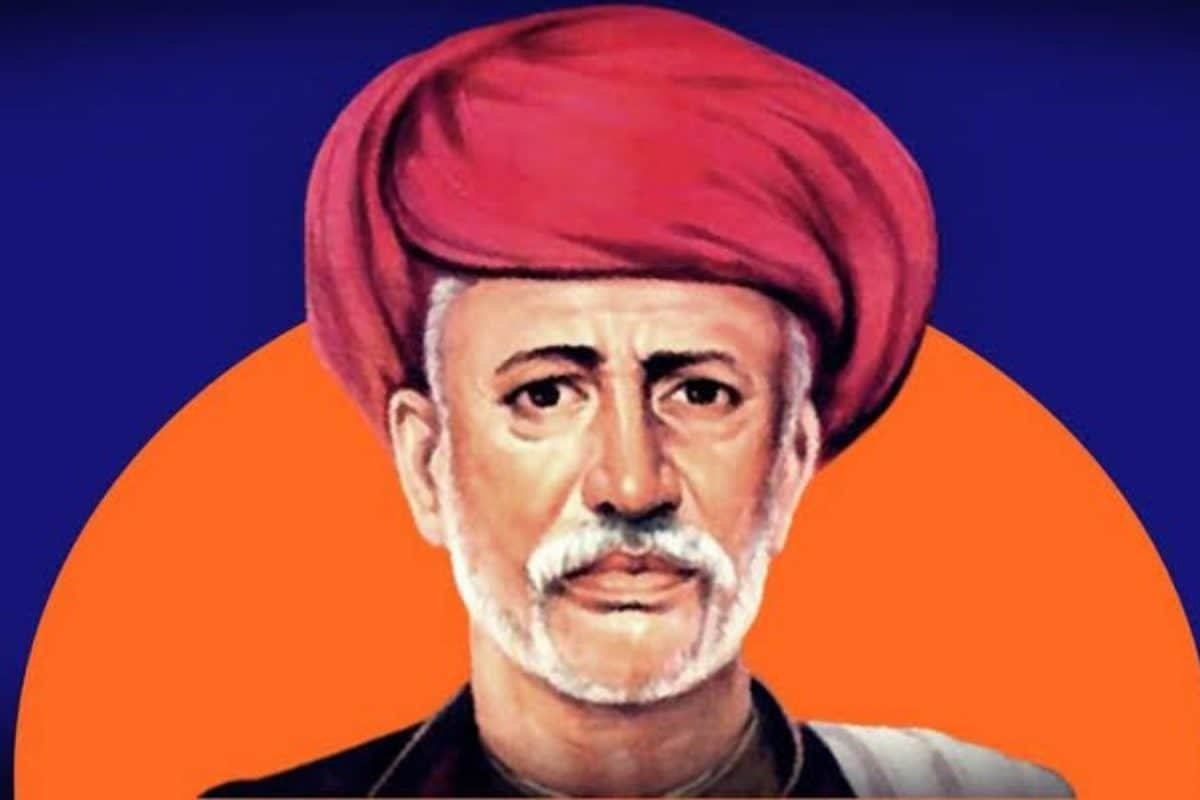Phule rose not merely as a social reformer but as a fearless visionary who imagined an...
Read More On April 11, we commemorated the birth anniversary of Mahatma Jyotirao Govindrao Phule, a towering figure in India’s social history. Born in 1827 into a society steeped in the cruel hierarchies of caste and patriarchy, Phule rose not merely as a social reformer but as a fearless visionary who imagined an egalitarian future far ahead of his time. His fight was not for reform alone—it was for a moral and political revolution.

At a time when Hindu society was bound by ritualistic orthodoxy and entrenched caste-based discrimination, Phule waged an unrelenting war against Brahminical supremacy. But what distinguished his resistance was the weapon he chose—education. In the face of condemnation, boycott, and threats, Phule and his equally radical partner, Savitribai Phule, dared to open the first school for girls in Pune in 1848.
They educated Dalits and women when the orthodoxy declared it sinful. Phule believed, and rightly so, that knowledge would break the shackles of ignorance, and that education was the sword with which social slavery could be cut. Phule’s conception of education was deeply political.
For him, to teach the oppressed to read and write was not simply about imparting knowledge—it was about challenging the very grammar of power. His words still ring with force today: “Without education, wisdom was lost; without wisdom, morals were lost; without morals, development was lost; without development, wealth was lost; without wealth, the Shudras were ruined." This was not a poetic lament—it was a structural diagnosis.
Even today, the denial of quality education to marginalised communities—whether by systemic neglect or deliberate exclusion—mirrors the oppressive patterns Phule condemned. His life remains a manifesto demanding that education be reclaimed as a weapon of liberation, not hoarded as an instrument of privilege. But Phule’s radical vision did not stop at caste.
He was one of India’s first truly intersectional thinkers. While remembered as a pioneer of anti-caste activism, Phule also waged a parallel battle against gender oppression. In Savitribai Phule, his partner in revolution, he found not only a collaborator in pedagogy but a co-warrior against patriarchy.
Together, they established a shelter for pregnant widows, fought the ostracism of widows, challenged child marriage, and created a new grammar of equality for women. At a time when Indian feminism still struggles with caste-blindness and elitism, Phule’s philosophy offers a foundational lesson: the liberation of women and the annihilation of caste are not separate struggles—they are the same. His bold indictment of patriarchal customs did not stem from ideology alone—it arose from lived experience and moral clarity.
His revolution was holistic, inclusive, and ahead of its time. In 1873, Phule founded the Satyashodhak Samaj —the “Society of Truth Seekers"—which rejected the monopoly of Brahmins in spiritual and social life and created a community based on truth, equality, and mutual respect. Members of the Samaj challenged the notion that one’s worth was determined by birth, arguing instead for moral merit and social contribution.
They conducted inter-caste marriages, resisted exploitative priestly rituals, and facilitated the education of the “untouchables." This was not reformism—it was revolution. The Satyashodhak worldview attacked not only social structures but epistemological systems.
It said to India: your gods are flawed, your scriptures unjust, your rituals oppressive. For Phule, truth was not static, inherited, or divine—it was sought, examined, questioned, and earned. Even today, this radical democratisation of truth and religion holds profound relevance in a society witnessing the re-Brahmanisation of public discourse and a resurgence of caste supremacy cloaked in cultural pride.
India is often described as a plural, composite, and inclusive civilisation. Yet Phule’s analysis pierces through this romantic illusion. In his pathbreaking book Gulamgiri (Slavery), he drew parallels between the subjugation of Shudras by the Aryan Brahmins and the slavery of African Americans.
He was not interested in polite accommodation—he sought to demolish the foundations of caste itself. What Phule proposed was not just social justice, but social restructuring. His vision of India was not based on unity in diversity but on dignity in equality.
Today, as we confront rising communalism, the silencing of dissent, and the persistent exclusion of Dalits, Adivasis, and religious minorities, Phule’s India seems more necessary than ever. In a time when political rhetoric often distorts history to promote exclusionary nationalism, remembering Phule is an act of defiance. He reminds us that real patriotism lies not in glorifying a mythical past but in correcting historical wrongs.
His insistence that the measure of a society lies in how it treats its most oppressed remains powerfully relevant. In today’s India—where caste-based violence, institutional discrimination, and social ostracism are still rampant—Phule’s ideas serve both as a critique and a call to action. We must not forget that India continues to struggle with the same demons Phule fought—caste apartheid, educational deprivation, patriarchal orthodoxy, and religious bigotry.
That is why his legacy must be not merely remembered but operationalised—in policy, pedagogy, activism, and culture. Despite his monumental contributions, Phule has been largely excluded from the mainstream national imagination. Unlike the glorified nationalist icons who accommodated dominant caste interests, Phule refused to bow to Brahminical approval.
For this reason, he was long neglected by official histories, relegated to the margins of textbooks and state functions. Even today, many who invoke his name do so in ritual, not in action. But among the grassroots—farmers, students, activists, and intellectuals in Ambedkarite and Bahujan movements—Phule remains a guiding light.
His ideas have found resurgence in university campuses, land rights protests, anti-manual scavenging campaigns, and the fight for reservation and dignity. It is through Dr BR Ambedkar, his ideological successor, that Phule’s ideas were institutionally enshrined in the making of modern India. Ambedkar credited Phule as his greatest teacher and built on his foundations to give us the Constitution that declared liberty, equality, and fraternity as its pillars.
Mahatma Phule’s birth anniversary must not become an occasion for mere garlands and quotations. It must become a moment of political awakening. We must ask: how many Savitribais are denied school today? How many Dalit students drop out for lack of support? How many “truth seekers" are punished for dissent? The answer to these questions is a measure of our failure to embody Phule’s ideals.
And yet, to invoke Phule is also to invoke hope. It is to believe, against all odds, that another India is possible—one where the child of a manual scavenger and the daughter of a domestic worker can dream without fear and learn without prejudice. Let us not merely remember Jyotirao Phule.
Let us become like him— seekers of truth. Amal Chandra is an author, political analyst and columnist. Follow him on ‘X’ at @ens_socialis.
Views expressed in the above piece are personal and solely those of the author. They do not necessarily reflect News18’s views..
Politics

Opinion | Jyotirao Phule: The Revolutionary Flame Still Burning Bright

Phule rose not merely as a social reformer but as a fearless visionary who imagined an egalitarian future far ahead of his time. His fight was not for reform alone—it was for a moral and political revolution















